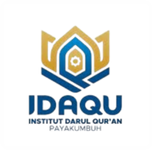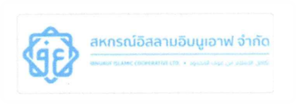The Practice of Tikrar Method in Memorizing the Quran Junior High School Students in Indonesia
Keywords:
Tikrar, muroja'ah, tahsin, musyafahah, tahfizh QuranAbstract
Quran memorization activities in Indonesia are of great interest to students. Many educational institutions have made Quran memorization one of the extracurricular activities and school flagship programs. However, one of the junior high schools in West Sumatra is different. This school makes a special class per level to memorize the Quran or called the tahfizh class. Graduates from this school can memorize at least 3 juz, some even more according to the ability of each student. In tahfidz learning, students use the tikrar method so that they are able to memorize the Quran and then maintain the memorization well. The purpose of this study was to determine the practice of implementing the tikrar method in memorizing the Koran. This research uses a qualitative method using a case study approach. Data sources were taken from eighteen informants through in-depth interviews. The eighteen informants consisted of the principal, tahfizh teachers and special students of tahfizh class. To obtain data, the author conducted observations, interviews and documentation. This study found that there are six stages of students using the tikrar method in memorizing the Quran, namely: reading verses by looking at the Mushaf, repeating verses by looking at the Mushaf, repeating verses without looking at the Mushaf, combining memorized verses with the next verse, tasmi' (reciting) memorization of the Quran to the teacher and murojaah or repeating memorization. This research can be used as a reference for educational institutions and teachers and guide students in memorizing the Quran.
References
‘Ulya, K., & Saidah, S. (2017). Rijalul Qur’an. Qof, 1(1), 51–64. https://doi.org/10.30762/qof.v1i1.929
Afidah, S. I., & Anggraini, F. S. (2022). Implementasi Metode Muraja’Ah Dalam Peningkatan Kualitas Hafalan Al-Qur’an Di Pondok Pesantren Amanatul Qur’an Pacet Mojokerto. Al-Ibrah : Jurnal Pendidikan Dan Keilmuan Islam, 7(1), 114–132. https://doi.org/10.61815/alibrah.v7i1.192
Akbari, H., Sheikhani, A., NasrAbadi, A. M., Mohammadi, M. R., & Ghoshuni, M. (2022). Evaluating the event-related potentials relevant to two groups of the Quran memorizers and non-memorizers during the retrieval phase of the visual memory. Biomedical Signal Processing and Control, 73, 103411. https://doi.org/10.1016/j.bspc.2021.103411
Al-Qattan, M. K., Hasanudin, M., & AS, M. (1992). Mubahatsu fi’ulum Al-Qur’an. Riyad.
Alwi, T., Badaruddin, K., & Febriyanti, F. (2023). Pelaksanaan Pembelajaran Tahfidz Al-Qur`An Dalam Membentuk Karakter Islami Siswa. Munaddhomah: Jurnal Manajemen Pendidikan Islam, 4(3), 756–766. https://doi.org/10.31538/munaddhomah.v4i3.466
Alyona, B., Tursun, G., Akmaral, M., & Saira, S. (2016). Spiritual Understanding of Human Rights in Muslim Culture (The Problem of “Ruh” – “Spirit”). Procedia - Social and Behavioral Sciences, 217, 712–718. https://doi.org/10.1016/j.sbspro.2016.02.131
Amelya, A., Eramahi, E., & Oktavia, G. (2023). Implementation of the Wafa Method in Learning Quran Tahfizh. Ahlussunnah: Journal of Islamic Education, 2(1), 1–7. https://doi.org/10.58485/jie.v2i1.185
Anwar, K., & Hafiyana, M. (2018). Implementasi Metode ODOA (One Day One Ayat) dalam Meningkatkan Kemampuan Menghafal al-Quran. Jurnal Pendidikan Islam Indonesia, 2(2), 181–198. https://doi.org/10.35316/jpii.v2i2.71
Arjoni, A., Oktavia, G., Akmal, F., Zeky, S., Fajri, J., & Febriani, A. (2024). Yanbu’a Method: A Solution to Increase Students’ Proficiency in Al-Qur’an Education. Al-Hashif: Jurnal Pendidikan Dan Pendidikan Islam, 2(2), 65–70.
Azizah, D. D., Kustati, M., Amelia, R., & Azzahra, F. (2024). Pelatihan Tahfidz Al-Qur’an Menggunakan Metode Tasmi’dan Muraja’ah Melalui Program Kampus Mengajar di Kota Padang. Jurnal Pengabdian Masyarakat Polmanbabel, 4(02), 243–250. https://doi.org/10.33504/dulang.v4i02.335
Basid, A., & Ghani, A. (2023). Konsep Ketentraman Hidup Perspektif Quraish Shihab (Studi Surah Al-Insyirah dalam Tafsir Al-Misbah). Syariati: Jurnal Studi Al-Qur’an Dan Hukum, 9(1), 13–22. https://doi.org/10.32699/syariati.v9i1.4561
Batubara, N. M. (2022). Implementasi Pembelajaran Tahfiz Al Quran Di Smp It Nurul Ilmi. Evaluasi: Jurnal Manajemen Pendidikan Islam, 6(2), 288–294. https://doi.org/10.32478/evaluasi.v6i2.1040
Black, R., Mushtaq, F., Baddeley, A., & Kapur, N. (2020). Does learning the Qur’an improve memory capacity? Practical and theoretical implications. Memory, 28(8), 1014–1023. https://doi.org/10.1080/09658211.2020.1811347
Chahnia, J., Kustati, M., & Amelia, R. (2023). Pendampingan Tahfiz Al-Qur’an Santri Menggunakan Metode Tasmi’ di MDTA Nurul Yaqin Bukittinggi. RENATA: Jurnal Pengabdian Masyarakat Kita Semua, 1(3), 99–106. https://doi.org/10.61124/1.renata.23
Chotimah, C. (2022). Implementasi Metode Kauny Quantum Memory Dalam Meningkatkan Kemampuan Menghafal Alqur’an Juz 30. Risâlah, Jurnal Pendidikan Dan Studi Islam, 8(3), 1098–1112. https://doi.org/10.31943/jurnalrisalah.v8i3.329
Ellis, L. (2017). Religious variations in fundamentalism in Malaysia and the United States: Possible relevance to religiously motivated violence. Personality and Individual Differences, 107, 23–27. https://doi.org/10.1016/j.paid.2016.11.012
Engkizar, E., Jaafar, A., Masuwd, M. A., Rahman, I., Datres, D., Taufan, M., Akmal, F., Dasrizal, D., Oktavia, G., Yusrial, Y., & Febriani, A. (2025). Challenges and Steps in Living Quran and Hadith Research: An Introduction. International Journal of Multidisciplinary Research of Higher Education (IJMURHICA, 8(3), 426–435. https://doi.org/10.24036/ijmurhica.v8i3.396
Engkizar, E., Jaafar, A., Sarianto, D., Ayad, N., Rahman, A., Febriani, A., Oktavia, G., Guspita, R., & Rahman, I. (2024). Analysis of Quran Education Problems in Majority Muslim Countries. International Journal of Islamic Studies Higher Education, 3(1), 65–80. https://doi.org/10.24036/insight.v3i1.209
Engkizar, E., Jaafar, A., Taufan, M., Rahman, I., Oktavia, G., & Guspita, R. (2023). Quran Teacher: Future Profession or Devotion to the Ummah? International Journal of Multidisciplinary Research of Higher Education (IJMURHICA, 6(4), 196–210. https://doi.org/10.24036/ijmurhica.v6i4.321
Engkizar, E., Sarianti, Y., Namira, S., Budiman, S., Susanti, H., & Albizar, A. (2022). Five Methods of Quran Memorization in Tahfidz House of Fastabiqul Khairat Indonesia. International Journal of Islamic Studies Higher Education, 1(1), 54–67. https://doi.org/10.24036/insight.v1i1.27
Fathah, M. U. A. (2021). Metode Tahsin Dan Tahfidz Al-Qur’an Di Pondok Pesantren Smp Mbs Bumiayu. Jurnal Ilmiah Ilmu Ushuluddin, 20(2), 188. https://doi.org/10.18592/jiiu.v20i2.4750
Fatmi, F., Fatrima Santri Syafri, & Poni Saltifa. (2022). Pengaruh Kemampuan Menghafal Al-Quran terhadap Pemahaman Konsep Matematika bagi Siswa Madrasah Aliyah Pondok Pesantren Pancasila Kota Bengkulu. Jurnal Pendidikan Mipa, 12(3), 464–471. https://doi.org/10.37630/jpm.v12i3.639
Hartono, Y. (2021). Rekontruksi Penulisan Teks Al-Quran Modern. Al-Bayan: Jurnal Ilmu Al-Qur’an Dan Hadist, 4(2), 232–243. https://doi.org/10.35132/albayan.v4i2.138
Ikhwanuddin, M. (2023). Metode Tikrar Dalam Tahfidz Al-Qur’an: Studi Kasus Di Pondok Pesantren Takhassus Al-Qur’an. ILJ: Islamic Learning Journal, 1(4), 1032–1052. https://doi.org/10.54437/iljjislamiclearningjournal.v1i4.1298
Ilyas, M. (2020). Metode Muraja’ah dalam Menjaga Hafalan Al-Qur’an. AL-LIQO: Jurnal Pendidikan Islam, 5(01), 1–24. https://doi.org/10.46963/alliqo.v5i01.140
Irpina, I., Istiqamah, I., & Anisa, N. (2022). Jam’Ul Qur’an Masa Nabi Muhammad Saw. MUSHAF JOURNAL: Jurnal Ilmu Al Quran Dan Hadis, 2(1), 93–100. https://doi.org/10.54443/mushaf.v2i1.22
Juarsyah, M., Ikhwan, A., & Alda, M. (2025). Implementasi Metode Prototyping pada Aplikasi Pembelajaran Metode Tikrar Dalam Menghafal Al-Quran Berbasis Android. Jurnal Manajemen Informatika (JAMIKA, 15(1), 1–16. https://doi.org/10.34010/jamika.v15i1.13423
Khalid, I. (2017). Alquran Kalamullah Mukjizat Terbesar Rasulullah Saw. Diya Al-Afkar: Jurnal Studi Al-Quran Dan Al-Hadis, 5(01), 39. https://doi.org/10.24235/diyaafkar.v5i01.4332
Khoriyah, R., Cholifah, C., & Nadhiro, N. L. (2022). Implementasi Metode 3T+1M Program Tahfidh Juz Amma Untuk Meningkatkan Motivasi Menghafal Peserta Didik Di Sdn 2 Tawangrejo Lamongan. Pionir: Jurnal Pendidikan, 11(3). https://doi.org/10.22373/pjp.v11i3.14853
Kuenzi, M. (2018). Education, religious trust, and ethnicity: The case of Senegal. International Journal of Educational Development, 62, 254–263. https://doi.org/10.1016/j.ijedudev.2018.05.007
Kusumastuti, T., Fatkhurrohman, M., & Fatchurrohman, M. (2022). Implementasi Metode Menghafal Qur’an 3T+1M Dalam Meningkatkan Kualitas Hafalan Santri. Al’Ulum Jurnal Pendidikan Islam, 259–273. https://doi.org/10.54090/alulum.125
Lambarraa, F., & Riener, G. (2015). On the norms of charitable giving in Islam: Two field experiments in Morocco. Journal of Economic Behavior and Organization, 118, 69–84. https://doi.org/10.1016/j.jebo.2015.05.006
Manurung, S. A., Jannah, R., Syahdina, M., Azkia, M. W. F., & Nasution, S. (2024). Kontribusi Ekstrakulikuler Sebagai Penyokong Kemajuan Pondok Pesantren Darul Falah Aek Songsongan. Al-Tarbiyah : Jurnal Ilmu Pendidikan Islam, 2(2), 108–128. https://doi.org/10.59059/al-tarbiyah.v2i2.902
Masita, R., Khirana, R. D., & Gulo, S. P. (2020). Santri Penghafal Alquran: Motivasi dan Metode Menghafal Alquran Santri Pondok Pesantren Tahfizul Qur’an Sungai Pinang Riau. Idarotuna, 3(1), 71. https://doi.org/10.24014/idarotuna.v3i1.11339
Maulana, L. (2017). Kitab Suci dan Hoax: Pandangan Alquran dalam Menyikapi Berita Bohong. Wawasan: Jurnal Ilmiah Agama Dan Sosial Budaya, 2(2), 209–222. https://doi.org/10.15575/jw.v2i2.1678
Neliwati, N., Afda, M. A., & Helmi, N. (2023). Metode Pembelajaran Tahfizh Alquran di Pesantren ‘Ulumul Qur’an Mardhatillah Kota Subulussalam. EduInovasi: Journal of Basic Educational Studies, 4(1), 140–148. https://doi.org/10.47467/edui.v4i1.4632
Noury, A. G., & Speciale, B. (2016). Social constraints and women’s education: Evidence from Afghanistan under radical religious rule. Journal of Comparative Economics, 44(4), 821–841. https://doi.org/10.1016/j.jce.2016.07.005
Novelia, I. (2019). Al-Quran Dalam Perspektif Masyarakat Islam Kejawen dan Implikasinya dalam Kehidupan Praksis. MAGHZA: Jurnal Ilmu Al-Qur’an Dan Tafsir, 4(1), 108–122. https://doi.org/10.24090/maghza.v4i1.2839
Nurfitriani, R., & Almi Hidayat, M. (2024). Penerapan Metode FLASH Dalam Pembelajaran Tahfidz Quran Juz “Amma Untuk Siswa MTs Madani Perdagangan II Kabupaten Simalungun. EL-Hadhary: Jurnal Penelitian Pendidikan Multidisiplin, 2(01), 48–61. https://doi.org/10.61693/elhadhary.vol201.2024.48-61
Nurfitriani, R., Hidayat, M. A., & Musradinur, M. (2022). Implementasi Metode Kitabah Dan Metode Wahdah Dalam Pembelajaran Tahfidz Siswa Sekolah Dasar. Pionir: Jurnal Pendidikan, 11(2), 87–99. https://doi.org/10.22373/pjp.v11i2.13642
Oktavia, G., Febriani, A., Hasnah, H., Sabrina, V., & Rahman, I. (2024). Enam Metode Menghafal Al-Qur’an Mahasiswa di Perguruan Tinggi Al-Qur’an Indonesia. Jurnal Kepemimpinan Dan Pengurusan Sekolah, 9(1), 12–23. https://doi.org/10.34125/jkps.v9i1.105
Oktavia, G., Nurfadhilah, N., & Febriani, A. (2024). Systematic Literature Review: Quran Memorization Methods in Indonesia. Journal of Quranic Teaching and Learning, 1(1), 60–72.
Oktavia, G., Ramadhany, N. F., Sabrina, V., & Sameto, M. B. (2020a). Six Motivations of Housewives Following the Tahsin Alquran. International Journal of Multidisciplinary Research of Higher Education, 3(2), 73–81. https://doi.org/10.24036/ijmurhica.v3i2.190
Oktavia, G., Ramadhany, N. F., Sabrina, V., & Sameto, M. B. (2020b). Six Motivations of Housewives Following the Tahsin Alquran. International Journal of Multidisciplinary Research of Higher Education, 3(2), 73–81.
Putri, C. T., Oktavia, G., Syafura, T., Lainah, L., & Rahawarin, Y. (2021). Teacher’s Strategy in Improving Students’ Ability to Memorize the Qur’an. International Journal of Multidisciplinary Research of Higher Education, 4(3), 94–103. https://doi.org/10.24036/ijmurhica.v4i3.106
Ridiawati, R., Komarudin, K., Rochman, A. S., Hariyanto, T., & Jaelani, D. A. (2025). Implementasi Metode Takrir Berbasis Multimedia dalam Meningkatkan Hafalan Al-Qur’an. Tarbiyah Islamiyah: Jurnal Ilmiah Pendidikan Agama Islam, 10(1), 17–32. https://doi.org/10.70757/kharismatik.v3i1.22
Risma, I., Loka, N., & Amzana, N. (2024). Penerapan Metode Tabarok Dalam Meningkatkan Hafalan Al-Quran di Madrasah Ibtidiah Syuhratul Islam Gelumbang. Istinbath, 16(2), 30–43. https://doi.org/10.19109/istinbath.v16i2.26104
Rosalinda, R., Luthfiyah, L., & Ferdiansyah, F. (2025). Implementasi Metode 3T+ 1M (Tasmi’, Tafahhum, Tikrar dan Muroja’ah) Dalam Meningkatkan Kualitas Hafalan Al-Qur’an di SMP Islam Tahfidz Qur’an (ITQ) Kelurahan Kolo Kota Bima. Action Research Journal Indonesia (ARJI, 7(1), 511–521. https://doi.org/10.61227/arji.v7i1.312
Santoso, H. B., Schrepp, M., Hasani, L. M., Fitriansyah, R., & Setyanto, A. (2022). The use of User Experience Questionnaire Plus (UEQ+) for cross-cultural UX research: evaluating Zoom and Learn Quran Tajwid as online learning tools. Heliyon, 8(11). https://doi.org/10.1016/j.heliyon.2022.e11748
Satra, M., & Muarifah, A. (2024). Tinjauan Literatur tentang Kesejahteraan Psikologis pada Penghafal Al-Qur’an. Qudwah Qur’aniyah: Jurnal Studi Al-Qur’an Dan Tafsir, 2(1), 42–60. https://doi.org/10.30631/qudwahquraniyah.v2i1.2392
Singh, M., James, P. S., Paul, H., & Bolar, K. (2022). Impact of cognitive-behavioral motivation on student engagement. Heliyon, 8(7), 9843. https://doi.org/10.1016/j.heliyon.2022.e09843
Syafril, S., Yaumas, N. E., Engkizar, E., Jaafar, A., & Arifin, Z. (2021). Sustainable Development: Learning the Quran Using the Tartil Method. Al-Ta Lim Journal, 28(1), 1–8. https://doi.org/10.15548/jt.v1i1.673
Taufik, Kurniawan, R., Ibrahim, R., Abdullah, H., & Widhiastuti, H. (2024). Preserving Qur’an Through Blind Eyes: Self-Regulation of Blind People in Memorizing the Qur’an. Journal of Disability and Religion, 28(1), 1–12. https://doi.org/10.1080/23312521.2022.2133788
Thohir, A., Supriadi, D., Mulyana, Arifin, F., & Septiadi, M. A. (2021). The Struggle Of Freemasonry And Islamic Ideology In The Twentieth Century During Colonialization In Indonesia. Heliyon, 7(10), 8237. https://doi.org/10.1016/j.heliyon.2021.e08237
Vandita, L. Y. (2020). Metode Menghafal Al-Qur’an Rumah Tahfidz Islahul Ummah Desa Monggas Lombok Tengah. Jurnal Ilmiah Global Education, 1(2), 150–154. https://doi.org/10.55681/jige.v1i2.48
Wachidah, N. R., & Habibie, M. L. H. (2021). Self Management Dalam Meningkatkan Kualitas Menghafal Al-Qur’an. Al-Idarah: Jurnal Kependidikan Islam, 11(1), 25–38. https://doi.org/http://dx.doi.org/10.24042/alidarah.v11i1.8458
Zainal, Z., Febriani, A., Oktavia, G., & Zahara, A. (2022). Phenomenology of Juvenile Delinquency in Society: What Should Parents Do? Ahlussunnah: Journal of Islamic Education, 1(1), 37–45. https://doi.org/10.58485/jie.v1i1.85
Zulkipli, Z., Hidayat, H., Ibrahim, I., & Praja, A. (2020). Perencanaan Ekstrakurikuler Kerohanian Islam (Rohis) Di Madrasah Aliyah Al-Fatah Palembang. Fitrah: Journal of Islamic Education, 1(1), 19–35. https://doi.org/10.53802/fitrah.v1i1.2
Downloads
Published
Issue
Section
License
Copyright (c) 2025 Journal of Theory and Research Memorization Quran

This work is licensed under a Creative Commons Attribution-ShareAlike 4.0 International License.









